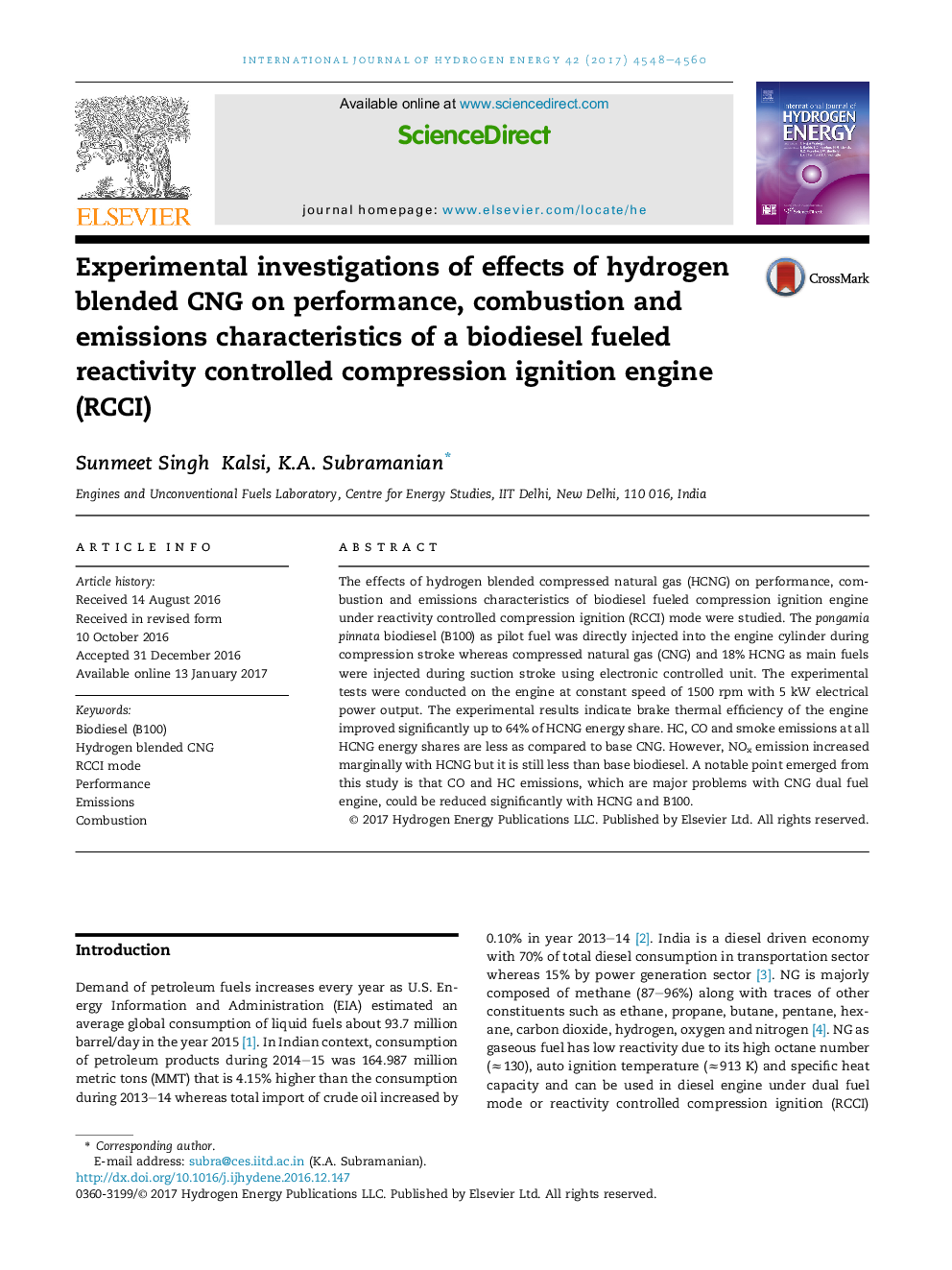| Article ID | Journal | Published Year | Pages | File Type |
|---|---|---|---|---|
| 5146370 | International Journal of Hydrogen Energy | 2017 | 13 Pages |
â¢Brake thermal efficiency is higher with biodiesel (B100)-HCNG than base B100-CNG.â¢Heat release rate is higher with B100-HCNG than base B100-CNG mode.â¢HC, CO and smoke emissions is less with B100-HCNG than base mode.â¢NOx emission is higher with B100-HCNG than base B100-CNG.â¢NOx emission still less with B100-HCNG RCCI mode than base B100 mode.
The effects of hydrogen blended compressed natural gas (HCNG) on performance, combustion and emissions characteristics of biodiesel fueled compression ignition engine under reactivity controlled compression ignition (RCCI) mode were studied. The pongamia pinnata biodiesel (B100) as pilot fuel was directly injected into the engine cylinder during compression stroke whereas compressed natural gas (CNG) and 18% HCNG as main fuels were injected during suction stroke using electronic controlled unit. The experimental tests were conducted on the engine at constant speed of 1500Â rpm with 5Â kW electrical power output. The experimental results indicate brake thermal efficiency of the engine improved significantly up to 64% of HCNG energy share. HC, CO and smoke emissions at all HCNG energy shares are less as compared to base CNG. However, NOx emission increased marginally with HCNG but it is still less than base biodiesel. A notable point emerged from this study is that CO and HC emissions, which are major problems with CNG dual fuel engine, could be reduced significantly with HCNG and B100.
